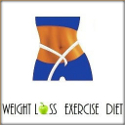-
Help for Food Cravings and Sugar Addictions
Tuesday, April 15th, 2025by Nancy Clark, Registered Dietitian
There is no doubt that sugar addictions and food cravings are a big concern and source of frustration for many of us. It seems like most people believe that if they eat one chocolate bar, it will quickly lead to eating a whole box of chocolate bars. Thus to protect our waistlines and our health, we stay away from chocolate and instead snack exclusively on “healthy foods” like apples and bananas.
 While fruit is indeed a more nutritious and health-promoting snack, that doesn’t mean chocolate can’t be a part of a diet for athletes (or anybody else). By learning to enjoy chocolate in moderation, you can do away with the strong cravings that lead to binging on it – not because you are “addicted to sugar,” but because you are engaged in “last chance eating” before you return to your self-created food “lock-down.” (1)
While fruit is indeed a more nutritious and health-promoting snack, that doesn’t mean chocolate can’t be a part of a diet for athletes (or anybody else). By learning to enjoy chocolate in moderation, you can do away with the strong cravings that lead to binging on it – not because you are “addicted to sugar,” but because you are engaged in “last chance eating” before you return to your self-created food “lock-down.” (1)No matter how hard you try, your brain retains a memory for the food you crave. That means if you try to ignore your craving for chocolate (or another food) you’ll end up eating it sooner rather than later. This may take place after you’ve tried to get control of your craving by eating a piece of fruit, some whole grain crackers (anything but the craved food itself) and then – several hundred calories later – you give in and eat to what you truly wanted in the first place. It would have been easier to just enjoy the chocolate from the start and you would have ended up consuming less calories!
Controlling Food Cravings
Controlling food cravings is a popular theme not only on my blog but also on LinkedIn’s Intuitive Eating Professionals group. One popular discussion entitled “If you crave a food, should you eat it?” led to a lot of responses, with the majority of the answers being: YES! Research shows that denial and deprivation of a person’s desired food does not work. Instead, it results in binge eating.
I mean, think about it: If restrictive eating truly “worked,” then everyone who has ever gone on a diet would be slim. Instead, most dieters remain overweight and obese, leading to speculation that “dieting fall-out” maybe be a contributing factor to obesity. (2)
Unfortunately, we live in a world where enjoying doughnuts, ice cream, chocolate and potato chips raises a red flag. Many people, athletes included, talk about needing more “willpower” to control their intake of the “junk” foods they crave. But the truth is that most of us would like to be able to enjoy such foods. We simply want to be able to eat them in a sane fashion – not lose control and start binging.
Instead of willpower, what we need is nutritional “skill power” to learn how to manage today’s food choices. This is an area where a sports dietitian can help you control hunger-based binges and learn to co-exist peacefully with food. (To locate a sports dietitian in your area, go to www.SCANdpg.org.)
Which begs the question: What’s so bad about food cravings in the first place? Why is it bad to eat what you truly want to eat? After all, cravings are not addictions. If you crave a doughnut because it tastes good, shouldn’t you enjoy a doughnut?
When you eat something you crave, your brain actually undergoes biochemical changes that signal happiness. So is consuming an appropriate portion of a food you crave (rather than overeating “the whole thing”) really such a bad thing to do?
The answer to this normally depends on whether you are eating the food for fuel, or just mindlessly devouring it. If you find yourself on the verge of eating a whole bag of corn chips, stop right there and ask, “Does my body really need this for fuel?”
If you answered “Yes,” then the next step is learning how to prevent the “extreme hunger” that triggered the overeating from happening. On the other hand, if you answered “No,” then ask yourself, “What feelings am I not dealing with?”
Food Cravings and Emotional Eating
Overeating as a result of giving in to your food cravings is often a convenient means of not dealing with feelings like sadness or loneliness. But no amount of doughnuts, corn chips or chocolate will resolve the real problem: you are likely hungry for love and affection.
Do particular foods overstimulate the pleasure centers in the brain? If yes, can these foods become “addictive?” Recent research (3) points to no such thing as a “sugar (or food) addiction.” Yes, a food may have addictive-like qualities, particularly following a restriction/binge eating pattern. (1) In my practice, most clients who go on binges appear to have an unbalanced relationship with food. In essence, food for them has become irresistible; a primary focus for pleasure. The more these people try to avoid these enticing foods, the more they seem to want them.
While there is still much research to be done on the controversial topic of food addictions, I encourage my patients to first rule-out hunger as the reason for their cravings for carbohydrates and sugar. It’s pure biology: when your muscles lack sufficient glycogen, you experience a craving for carbohydrates until your muscles have been sufficiently replenished. In the case of sugar cravings, it’s a survival signal for quick energy. Therefore, when your blood sugar is low, your brain signals a need for sugar in an urgent manner.
Overcoming Food Cravings and Addictions
So what can you do to conquer these food cravings and perceived “addictions” that are causing you so many problems? As a crucial first step, try eating bigger breakfasts and lunches to take the edge off your hunger. Don’t worry – you won’t “get fat” by eating larger meals during the day. If you listen to your body’s signals, you will soon realize that you are less hungry at night and are actually consuming fewer calories.
It’s also important to try changing your general mindset about eating. The mind plays a crucial role in all of this. If you think you are a food addict, you will have a hard time changing your behavior. Remember that research that shows that there really is no such thing as food addiction and that the real problem lies in deprivation of favorite foods as a trigger to (over)eat.
The next time you find yourself craving a particular food, try to relax and enjoy eating it. Savor it slowly, taste it, absorb the flavor, and take your time eating it. Try this method several times throughout the week. Your goal is to learn to enjoy the craved food slowly, in moderation, and without feeling guilty.
As a matter of fact, try to enjoy the foods you crave a little bit at every meal. For example, have a candy bar day after day, after breakfast, after lunch, for an afternoon snack, and after dinner. Eat candy bars so often that you get sick of them. This may sound fattening and unhealthy in the short term, but trust me – a couple weeks eating too much chocolate will not ruin your health, and it can help you to stop binging.
By learning how your body responds to different foods, you can begin to understand that food is not addictive and that cravings are not bad. What IS bad is depriving yourself of the foods you enjoy and constantly being hungry. Maybe you will be able to find peace with food, at last?
References:
1. Pelchat M. Food addiction in humans. J Nutr. 2009; 139(3)620-622
2. Corwin RL, and P Grigson. Symposium Overview—Food Addiction: fact or fiction? J Nutr. 2009; 139(3):617-619.
3. Benton, D. The plausibility of sugar addiction and its role in obesity and eating disorders. Clinical Nutrition 29(3):288-303, 2010.
(published April 1, 2012)
 Nancy Clark, MS, RD, CSSD (Board Certified Specialist in Sports Dietetics) counsels both casual and competitive athletes at her office in Newton, MA (617-795-1875). She teaches her clients how to choose a daily food plan that helps them reach their weight, health and performance goals. Her Sports Nutrition Guidebook and food guides for new runners, marathoners, and soccer players offer additional information. They are available at www.nancyclarkrd.com and sportsnutritionworkshop.com.
Nancy Clark, MS, RD, CSSD (Board Certified Specialist in Sports Dietetics) counsels both casual and competitive athletes at her office in Newton, MA (617-795-1875). She teaches her clients how to choose a daily food plan that helps them reach their weight, health and performance goals. Her Sports Nutrition Guidebook and food guides for new runners, marathoners, and soccer players offer additional information. They are available at www.nancyclarkrd.com and sportsnutritionworkshop.com.


